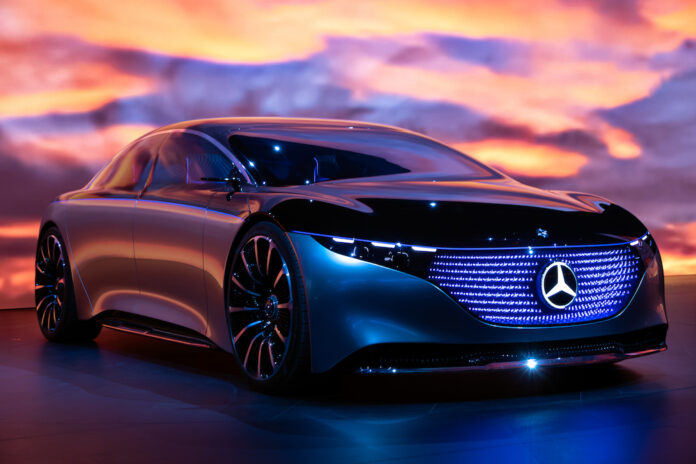Avanci launches 5G connected vehicle licensing program with 59 participants including Huawei
Mercedes-Benz Group has become the first automaker to sign a deal with US patent platform Avanci to license 5G technology for use in connected vehicles, according to Nikkei [subscription]. Mercedes-Benz will start selling vehicles equipped with 5G technology in Germany immediately.
Avanci licenses cellular standard-essential patents (SEP) on behalf of telecommunications firms and other patent holders and announced the launch of its 5G Connected Vehicle program this week. The company has already sealed 4G patent deals with a host of automakers as the popularity of connected vehicles has grown.
The new Avanci 5G program builds on the success of Avanci 4G Vehicle, which today has more than 130 million connected vehicles on the world’s roads from more than 80 automotive brands covered by an Avanci 4G Vehicle licence.
Under Avanci’s 5G program, it will initially cost automakers $29 to license each vehicle, with the price set to increase to $32 next year. Automakers under the 5G program will also have access to patents for 4G and other legacy standards.
In comparison, most automakers under the 4G program pay $15 per vehicle to access 2G, 3G and 4G patents. Last year, Avanci increased the contract fee for the 4G program to $20 for new licensees.
Since its founding in 2016, Avanci has steadily expanded its roster of licensors, which currently include Nokia, Ericsson, Qualcomm, Panasonic Holdings, Sony Group and China’s Huawei Technologies. There are 59 licensors in the 5G program, including Samsung Electronics and Japanese wireless carrier NTT Docomo.
Big names join the 5G launch
According to patent expert Florian Mueller writing on his blog Foss Patents, Qualcomm, Ericsson, Nokia, and InterDigital – the four major net licensors of cellular SEPs – are all on board again, as are dozens of others. Last time, Nokia wasn’t even on the initial list, but joined later on.
He said the most famous new licensor – not only of Avanci 5G but also 4G – is Huawei. “They have a huge and powerful portfolio of cellular SEPs (the 5G leader by some measure). Huawei very much emphasises the pursuit of a balance between licensors’ and licensee’s interests and believes in application-specific licensing terms.”
He added that notable absentees include Deutsche Telekom and Oppo although the latter is in litigation with at least four other licensors.
China Telecom is a notable new entry to Avanci’s 5G program, having not been on the 4G program. “The involvement of Huawei, China Telecom, and other Chinese entities as well as Sharp (Japanese, but owned by Foxconn) seems very significant in geopolitical terms. It would now make a lot of sense for Chinese car makers to take licences,” said Mueller.
Next step to vehicle-to-everything
Avanci founder and CEO Kasim Alfalahi told Nikkei in an interview that the company plans to continue negotiating with other automakers under the same conditions, with the aim of promoting the development of vehicle-to-everything (V2X) technology. V2X enables vehicles to directly communicate with other vehicles, cyclists, pedestrians and transportation infrastructure.
Going forward, Avanci is expected to pitch its 5G program to Japanese automakers. Under the 4G program, Japanese car companies concluded patent deals as late as last year, lagging years behind rivals such as BMW and General Motors, according to Nikkei. Previous patent negotiations were stymied by a deep-rooted belief among Japanese automakers that parts suppliers should be responsible for clearing patent rights and paying usage fees.
Car makers can focus on innovation rather than patents
Avanci SVP Laurie Fitzgerald said: “The launch of our 5G Connected Vehicle program is an important milestone for Avanci, as we can now provide automakers with the efficient option of a single agreement, covering patented cellular technologies from dozens of organizations worldwide, to support the rollout of 5G in connected vehicles.”
“The transition from 4G technology to 5G will be unlike any prior wireless changeover. For the first time, automakers are facing an industry transformation touching all aspects of vehicle development and sales, and car ownership,” said TechInsights automotive connected mobility director Roger Lanctot.
“With 25 global automakers committed to deployment, prospects are bright for 5G to transform vehicle connectivity. TechInsights forecasts that the share of 5G connected vehicles will grow to over 50% of new vehicle production in 5 years’ time,” he added.



